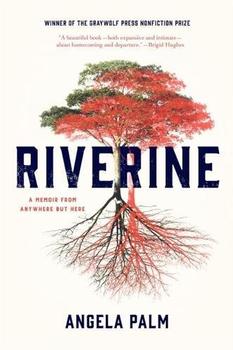Summary | Excerpt | Reading Guide | Reviews | Beyond the book | Read-Alikes | Genres & Themes | Author Bio

A Novel
by Hilary Thayer HamannAnthropology of an American Girl is a perfect summer book. It manages to be at once languorous and intense, a page-turner that demands to be read slowly, a story bathed in the golden light of Long Island with a dark thrum like an ocean undertow. It is a big fat book, just right for the lengthening days ahead. If you were once an American girl, you should read this book. If possible, you should read this book in concert with another former American girl, or two, or seven, so you can discuss it as it unfolds. This is a book that just might stir up dormant emotions from the summer of your own life, thoughts alternately welcome and discomfiting.
Evie, the narrator, is an outsider in her social milieu. She is attractive in a dark, unconventional way, so she draws the gazes of many people but lacks the protective envelope of a group of friends. Her divorced parents treat her with benign neglect. She is artistic without being especially disciplined or directed. She belongs to no school clubs, plays no sports or instruments. "All that was mine for me," she admits, "was an excellence at manufacturing feeling—great feelings of autonomy as ordained by my culture versus conflicting inside ones of loneliness, ambivalence, and confusion." Evie is painfully aware of her effect on others, but not always sure what to do when that attention throws herself back onto her own thoughts. "It was confusing, frankly, the way everyone stared at our bodies as they tried to erase the ideas of our bodies from our minds. We were supposed to get over ourselves, but no one was supposed to get over us." She is the distilled essence of an American (read: white, middle-class, straight) teenage girl.
Her story begins when she meets an older man who has come to her school to teach drama for a year. As she sees him at the other end of a school corridor, "cleaving the air like an angry black slash," she feels an instant attraction. "Never in my life had I seen anything so profoundly extrinsic, so exotic, so mystifying." The man smiles at her, "one swift and contemptuous smile, as if he'd caught me committing some crime that rendered me eligible for his coercion. And I accepted his terms."
What ensues is a forceful and nearly wordless relationship of pure sexual magnetism, an attraction so palpable that other people perceive it long before the two have even touched each other, a lust so strong that it can reorder the relationships of the people around them, namely Evie's boyfriend, Jack, and her best friend, Kate. Yet Evie and the older man cannot be together, for reasons which are never fully explained. "Despite his obvious interest and my real desire, we were impotent with respect to circumstance, and that made me angry, and my anger bound me to him. Roarke understood: he seemed angry as well. In those moments, we stepped out equally, we confessed equally, we were rendered equally weak, and as weakened equals we met, victoriously, at some median of daring and possibility."
Did you, perhaps, cringe, as you read that last quote? How about this one: "When I considered his keys, the slick conviction of his hand as it forced them into the ignition, I felt envious of the vehicle, of its prominence in his life." Or this one: "I've never known anyone with such a reverence for the sanctity of the body and the independence of the spirit…[I]t was his sober self-containment, his refusal to equivocate, that threatened and hurt people most." Yes, his name is Roarke and he is incapable of compromise, just like Howard Roark in The Fountainhead. The invocation of Ayn Rand continues throughout the book, yet has not been mentioned in any of the marketing or pre-publication reviews. Hilary Thayer Hamann edges awfully close to the precipice of pretension in her novel. This is a hazard of the trade when writing about teenage love, but she ups the stakes by making that love epic and principled.
Yet Hamann is such a fine, controlled writer that I wondered if she was bringing me to these moments of stylistic excess precisely in order to make me feel the awkwardness of being seventeen. In other places, her descriptions are gorgeous and inventive, as in this passage of driving through the night into dawn: "The ground ascended like a platform into day, and across it we shot, passing from one highway to the next—rolling west, rolling south, with the sun rising and the ellipse of the planet beneath." The publisher's marketing pitch makes much of the fact that this was a self-published cult hit that has since been edited and refined (see sidebar), but the truth is that it could have used much more brutal editing. The middle of the story threatens to drown in its own morass of heartbreak and summer torpor, but the final third of the book rolls back into a narrative of sexual competition and betrayal that works beautifully to crystallize as young adults the characters who were still forming themselves as teenagers in the first third of the book.
Like a hazy summer day, Anthropology of an American Girl never fully clicked into focus for me, which, oddly enough, is precisely why it so thoroughly captured my mind. Hamann grants her narrator a wisdom that exceeds her age ("Pain gets heavy when you carry it far from its source, like a bucket of water hauled miles from a stream—it acquires a whole new value, which is the sum of its essence and your investment. Pain becomes its own story.") This has the striking effect of making time overlap in Evie's voice, as if she is simultaneously narrating the book as it happens and telling it retrospectively from the distance of many years. Similarly, I was never sure how seriously to take the Randian overtones of Evie and Roarke's romance; does Hamann borrow Rand's language in order to lend grandeur to her story, or to critique the absolute terms in which a young Evie views her choices?
This imprecision in Evie's narration rendered the book as unresolved, as unanswerable, as many of my own teenage longings. It felt almost like a memory, despite my many points of difference with the heroine. I now feel possessive of this book, and I will be eager to watch its fortune in the marketplace, eager to talk about it with other women, eager to know how well it fits over their own memories of themselves.
![]() This review was originally published in The BookBrowse Review in June 2010, and has been updated for the
August 2011 edition.
Click here to go to this issue.
This review was originally published in The BookBrowse Review in June 2010, and has been updated for the
August 2011 edition.
Click here to go to this issue.

If you liked Anthropology of an American Girl, try these:

by Angela Palm
Published 2016
A spellbinding memoir of place, young love, and a life-altering crime.

by Meg Wolitzer
Published 2014
The Interestings explores the meaning of talent; the nature of envy; the roles of class, art, money, and power; and how all of it can shift and tilt precipitously over the course of a friendship and a life.
Your guide toexceptional books
BookBrowse seeks out and recommends the best in contemporary fiction and nonfiction—books that not only engage and entertain but also deepen our understanding of ourselves and the world around us.